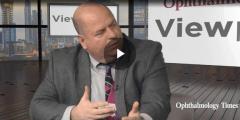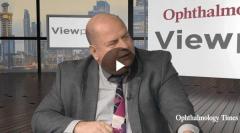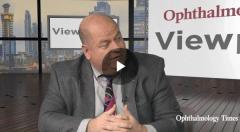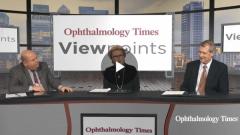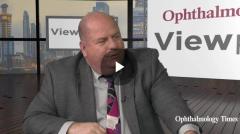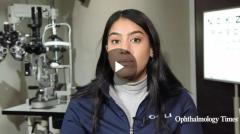
Cost and Substitution Issues
Episodes in this series

Eye care experts compare the direct and indirect costs of branded and generic medications. Dr Donnenfeld discusses his solution for minimizing concerns related to generic substitution at the pharmacy.
[Transcript]
Marguerite McDonald, MD, FACS: Let’s talk about the cost difference between branded and generics. Are generics always that much cheaper?
Eric Donnenfeld, MD, FACS: The answer is sometimes actually branded are cheaper than generics. I’ve had that happen many times where a patient comes back and they have paid 50% more for generic medication than they would pay for the branded. You have to be aware of that, and there’s a lot of concern now among the pharmaceutical makers to make certain that drugs are available to our patients. Cost has become a major issue. We’re all aware that our patients sometimes have limitations on what they can spend for their medications.
With different insurances, these branded medications can actually be a lot less costly. It’s almost like an IQ test. You have the ability to give a patient the FDA-approved, evaluated, safe medication that costs less than the generic medication with unknown excipients. Why would you not use the brand under those circumstances?
Marguerite McDonald, MD, FACS: A few years ago a lot of the insurance companies said, “Our patients can only have generics.” When that started to be the case, the companies that made generics said, “Well, that’s fine, that’s fine, let’s raise the prices.” So that was an unintended outcome, of course, of that.
Richard Mangan, OD, FAAO: I think also some of these pharmacies that are making the generics are also getting hit with increased regulation, and they’re having to pass those costs upward as well. It’s kind of hitting from all areas there.
Marguerite McDonald, MD, FACS: Eric, you mentioned some of the manufacturer rebates and coupons and such. Let’s talk about some of the direct and indirect costs of care. In other words, there are dollars and cents, but there’s also time, employee time, phone calls, prior authorizations, all that sort of thing. It’s very hard to put a finger on it, but it’s a big issue. A lot of the bigger practices have full-time people doing nothing but prior authorizations. Have you noticed, is that getting to be a bigger and bigger part of your life, Rich?
Richard Mangan, OD, FAAO: It is, and we are one of those places that have someone full time to do that. Thankfully, we have someone really dedicated to that. But as I speak around the country to my colleagues, I hear that’s still one of the barriers for them to sometimes get in the game on some of the newer products. I’d be curious to know what you do in your practice with that, Eric.
Eric Donnenfeld, MD, FACS: Rich, it’s an amazing problem. Not only is it tedious but it’s expensive, and it really limits our ability of our staff to do their jobs because we have a number of staff members who spend most of their time calling back pharmacies and patients and making certain that the medications that are prescribed are given to them, or arguing with pharmacies. This is not what I went into eye care to do. It’s not why you became an optometrist. It’s not why Marguerite and I became ophthalmologists. We don’t want to be talking to insurance companies and pharmacies about the medications. What we want is to give a patient something that we think is best for the patient; we want to be sure the patient gets that medication.
Richard Mangan, OD, FAAO: That’s right.
Eric Donnenfeld, MD, FACS: We’ve come up with some solutions that work fairly well, and we use some pharmacies now that have become the intermediary for this. These pharmacies are springing up around the country. I’ll mention we use a company named Orphan Pharmacy [Services], and we contact them, and all of the patients’ medications go through that pharmacy and if there’s a problem or a callback, it goes to the pharmacy. And the pharmacy knows what I consider to be a reasonable substitute, if needed, because we don’t want a patient paying out-of-pocket enormous sums of money. They know what I will consider reasonable, and they will make sure the patient gets that medication.
They’re working on behalf of the doctor, and on behalf of the patient. They’re not working on behalf of the pharmacy that has in mind, what can I give to the patient that will give me the most profit? So again, as an eye care professional, my major concern always has to be the same thing—what is best for my patients? And what’s best for my patients is very many times making certain the patient gets the medication that I think is in their best interest.
Richard Mangan, OD, FAAO: Do you find that even though you check the right box on the prescription pad sometimes, or sign on the right line, do you find that they still don’t come back with the prescription you prescribed?
Eric Donnenfeld, MD, FACS: Yes…
Richard Mangan, OD, FAAO: Marguerite?
Marguerite McDonald, MD, FACS: Absolutely I find that. And I find that there are some drugstores, especially some of the bigger chains, that will actually do the substitution without calling, which is very distressing.
Newsletter
Don’t miss out—get Ophthalmology Times updates on the latest clinical advancements and expert interviews, straight to your inbox.


